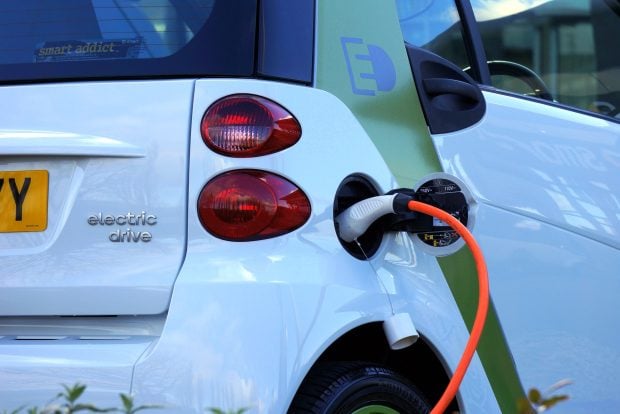Getting to net zero: how international aid can drive a sustainable transition


International aid is a key humanitarian and foreign policy tool of many governments around the world. Overseas development assistance is intended to promote the economic development and welfare of developing countries – and is of increasing importance in addressing climate change.
At the recent COP27 climate change conference, developed countries pledged to provide increased financial assistance to poor nations, including to compensate for loss and damage as a result of climate change.
Overseas development assistance is also going to be crucial to helping countries move to net zero through the development of clean power and other sustainable infrastructure. And – at a time of constraints on government budgets – making sure that aid money is spent effectively is a key concern for both donor countries and recipients.
This webinar looked at how international development spending can help countries reach net zero, and well as looking at how the impact of projects is best assessed, how to manage them on the ground, and how to evaluate what has worked best.
Join this session to find out:
- How countries can make the most of international development budgets to tackle climate change.
- The challenges to measuring value in aid investments like infrastructure, and how to overcome them.
- How donor and recipient countries can work together to make the money have the greatest impact.
Panel
Franco Conzato, Senior Expert, Directorate for Sustainable Development Policy and Coordination, Directorate-General for International Partnerships (INTPA), European Commission

Franco Conzato, an Italian National, is a Senior expert working at the European Commission (EC), Directorate General for International Partnerships (DG INTPA). During his career, he has held several positions serving as Economic Advisor in the EU Delegations in Ghana and Ethiopia. In HQs, he was Country Economist in the Macroeconomic Unit and more recently Deputy Head of the Unit Performance, Results and Evaluation Unit. During 2004-2009, he represented the EU at the Development Assistance Committee (DAC) of the OECD of which he was Vice-Chair in 2008-09. He is actually the Advisor to the Director for Sustainable Development Policy and Coordination of DG INTPA. He holds a degree in Political Science (University of Padua – Italy) and a Master in Banking and Financing for Development (Pool of Milan-based Universities – Italy).
Nick Bridge, Special Representative for Climate Change, Foreign, Commonwealth and Development Office, United Kingdom

Nick Bridge is a diplomat & civil servant. He was appointed as the Foreign Secretary’s Special Representative for Climate Change in 2017 & has advised the last Five Foreign Secretaries on climate & environmental diplomacy. He oversees the UK’s global diplomatic climate change work, currently focused on the UK’s COP26 Presidency 2021-22.
Nick was previously Permanent Representative & Ambassador of the United Kingdom to the OECD & IEA from 2011 to 2016. He was Chief Economist at the Foreign & Commonwealth Office. He has served for over a decade in diplomatic postings to China, Japan and the United States. Nick also worked in the Treasury, where he co-led a $4 billion facility to immunize half a billion people in the developing world that is estimated to have saved around 5 million lives. He began his career as an economist in the Ministry of Agriculture.
Nick has chaired or served on various Boards and published multiple international media articles on climate change & the environment. He studied economics at the University of Nottingham and was a Senior Leader in Government fellow at Harvard.
Kathryn Stratos, Deputy Director for Climate & Cross-Sectoral Strategy, Center for Environment, Energy & Infrastructure, U.S. Agency for International Development

Ms. Kathryn Stratos leads the U.S. Agency for International Development’s Climate and Cross-Sectoral Strategy Branch in the Center for Environment, Energy, and Infrastructure in Washington. She joined USAID in 1991 to work on its assistance program for Eastern Europe. She has worked on climate and development issues at USAID full-time since 2012 in various leadership positions, including previously serving as the Office Director for USAID’s Global Climate Change Office. Ms. Stratos has a Master’s of Public Affairs from the University of Texas and a Bachelor’s in Foreign Affairs from the University of Virginia.
Pradeep Kurukulasuriya, Executive Coordinator, Environmental Finance, United Nations Development Programme

Dr. Pradeep Kurukulasuriya is Executive Coordinator of Environmental Finance at UNDP. He leads a team at UNDP that is accountable for the provision of programming support and conduct of oversight, compliance and risk management of a $5.4 billion UNDP supported portfolio on nature, climate and energy financed by the Global Environment Facility, Green Climate Fund and Adaptation Fund. The portfolio is currently active in over 142 countries and enables countries to take urgent action on ecosystems and biodiversity conservation, forest management, ocean and water governance, climate strategies and policy reform at the national and sub-national level, climate change adaptation and mitigation, energy access and sustainable management of chemicals and waste.
Prior to joining UNDP in 2006, Pradeep worked with the World Bank’s Agriculture and Rural Development Department and Environment Department after starting his career in an NGO in Sri Lanka. An economist by training, he holds a M.Phil. from Cambridge University (UK) and both an M.Esc and Ph.D. in Environmental Economics from Yale University (USA).
Russell Marsh, Associate Partner, EY Singapore

Russell is a carbon, renewable energy and sustainable finance specialist, with over 20 years’ experience in the UK, Australia and Southeast Asia. He currently works as an Associate Partner in EY Singapore’s Strategy and Transactions team focusing on carbon, the energy transition and sustainable finance across ASEAN.
From 2019 – 2022 he led the delivery of the UK government’s ASEAN Low Carbon Energy Programme, a three-year programme focused on mobilising finance to support the low carbon transition across the region. He is now supporting the delivery of the energy and climate components of the Australian government’s Partnership for Infrastructure programme.
Prior to joining EY he led a two-year project for the Essential Services Commission (ESC) in Victoria, Australia, investigating the economic, social and environmental benefits of distributed generation.
From 2009-2015 he was Director of Policy at the Clean Energy Council (CEC) in Australia, the industry association for the renewable energy sector. In this role he was responsible for the development and delivery of the CEC’s policy and advocacy work plan.
In 2014 he was the member of an expert panel appointed by the German government to review the work of the world-renowned Potsdam Institute of Climate Research. In 2015 he was the clean energy expert member of an Australian delegation to Germany to participate in expert symposium developing proposals to inform the formal Australian – German dialogue convened by German Chancellor Angela Merkel and (then) Australian Prime Minister Tony Abbott.
From 1998-2008 he worked in various roles in the UK focusing on carbon and renewable energy policy. He was involved in the development of a number of the UK and EU climate policies.
Webinar chair: Siobhan Benita, former UK senior civil servant

Siobhan Benita was a senior civil servant with over 15 years’ Whitehall experience. She worked in many of the major delivery departments, including Transport, Environment, Health and Local Government. She also had senior roles at the heart of Government in the Cabinet Office and HM Treasury, including supporting the then Cabinet Secretary, Lord O’Donnell to lead work on Civil Service reform and strategy. Siobhan left the Civil Service to run as an independent candidate in the Mayor of London election. She subsequently joined her alma mater, Warwick University as Chief Strategy Officer of Warwick in London and Co-Director of the Warwick Policy Lab.













